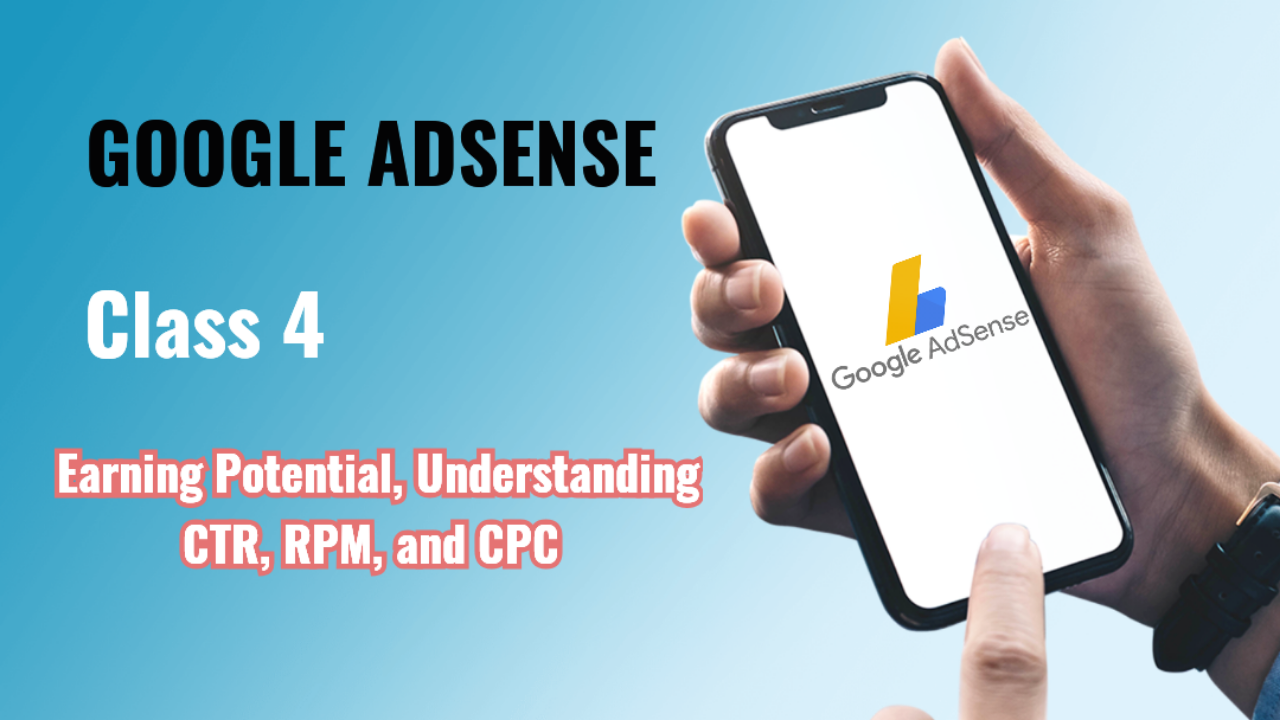Class 8: Policy Compliance and Best Practices for Google AdSense
In this class, we’ll explore the importance of policy compliance and best practices for maintaining a healthy Google AdSense account. AdSense has strict guidelines and policies that publishers must follow to ensure that ads are displayed in a safe and legitimate environment. Non-compliance can result in penalties, reduced revenue, or even account suspension, so it’s essential to stay within the guidelines.
8.1 The Importance of Policy Compliance
Google AdSense aims to maintain a quality network for both advertisers and publishers by enforcing clear policies. Compliance ensures that:
- Your account remains in good standing.
- Your ads continue to perform well without interruptions.
- You avoid potential revenue loss due to policy violations.
Consequences of Policy Violations:
- Warnings: Google will notify you of minor violations and ask you to correct them.
- Ad Limitation or Removal: Google may limit ad serving on your website or remove ads entirely if violations persist.
- Account Suspension or Termination: Repeated or serious violations can lead to account suspension or permanent termination.
8.2 Key Google AdSense Policies
Here are the most important AdSense policies that publishers must adhere to:
-
Content Guidelines:
- Prohibited Content: Google prohibits content that is illegal, misleading, or harmful. This includes violence, pornography, hate speech, drug-related content, and more.
- Family-Safe Content: Your website should be appropriate for all audiences. Sites with adult content, violent material, or excessive profanity will be penalized.
- Original Content: Always provide original content. Avoid duplicating content from other sources or engaging in content scraping, as this can result in penalties.
-
Click Fraud and Invalid Traffic:
- Invalid Clicks: AdSense strictly forbids encouraging users to click on ads or generating fake clicks through automated means. This includes clicking your own ads.
- Paid Traffic: Only genuine, organic traffic should engage with your ads. Paid traffic that is not disclosed or fraudulent traffic from bots or low-quality sources will lead to account issues.
- Click Encouragement: You cannot ask visitors to click ads or use deceptive practices like buttons that mimic ad layouts.
-
Ad Placement Rules:
- Accidental Clicks: Ads should be placed in ways that do not mislead users into clicking them accidentally. Avoid placing ads too close to clickable elements such as navigation menus, buttons, or images.
- Misleading Layouts: You should not place ads in a way that makes them look like content or navigation links. Clearly separate ads from other parts of your site.
- Ad Limitations: Follow the limits on the number of ads per page. You’re allowed up to three ad units per page, but make sure they don’t overwhelm the user experience.
-
Content and Ad Balance:
- Ad-to-Content Ratio: Avoid having too many ads compared to the amount of content on your page. Pages with little to no content but excessive ads will be flagged as low-quality.
- Above-the-Fold Ads: While placing ads above the fold can improve visibility, overloading the top of the page with ads and offering little content can lead to penalties.
-
Mobile Ads Compliance:
- Mobile-Friendly Ads: Ads should be responsive and fit well on mobile devices. Avoid ads that block the content or create a poor mobile experience.
- Pop-Ups and Interstitials: Be cautious when using pop-up ads or interstitials. They should not obstruct content or annoy users, especially on mobile devices.
8.3 Best Practices for Maintaining Compliance
Staying compliant with AdSense policies is not just about avoiding penalties; it’s also about creating a better experience for your users and improving ad performance. Here are some best practices:
-
Regular Content Reviews:
- Continuously review your site’s content to ensure it complies with AdSense policies. Be mindful of user-generated content if you allow comments or forums.
-
Monitoring Traffic Sources:
- Ensure that all traffic to your website is organic and legitimate. Avoid buying low-quality or irrelevant traffic, as this can lead to invalid clicks or penalties.
-
Ad Placement Optimization:
- Place ads strategically where users are likely to engage, but always make sure they are clearly distinguishable from the content. Experiment with different placements but stay within AdSense’s guidelines.
-
User Experience Focus:
- Provide a great user experience by balancing ads with quality content. Keep your website clean, fast-loading, and free from intrusive ads that disrupt the user journey.
-
Monitoring for Invalid Clicks:
- Regularly check your AdSense account for suspicious activity, such as spikes in CTR (Click-Through Rate) or sudden increases in ad clicks from certain IP addresses. If you suspect invalid traffic, report it to Google.
-
Stay Updated on Policy Changes:
- Google AdSense policies may change over time. Stay informed by regularly reviewing the AdSense Policy Center and updating your practices as necessary.
8.4 How to Appeal Policy Violations or Suspensions
If you receive a warning or notice from AdSense about policy violations, you have the option to appeal the decision. Here’s how to approach an appeal:
-
Identify the Issue:
- AdSense will typically provide a reason for the violation, such as invalid clicks or prohibited content. Carefully review the violation details to understand what needs to be addressed.
-
Fix the Problem:
- Correct the issue before submitting an appeal. Whether it’s updating your content or removing problematic ads, ensure that your site is fully compliant before you appeal.
-
Submit an Appeal:
- In your AdSense account, go to the Policy Center and find the option to appeal. Be clear and concise in explaining the steps you’ve taken to fix the issue. Provide any additional information that can support your case.
-
Follow Up:
- After submitting the appeal, Google will review your case. It may take several days to receive a response. Be patient and monitor your email for updates.
8.5 Common Reasons for AdSense Account Suspensions
Understanding the most common reasons for AdSense suspensions can help you avoid these issues:
-
Click Fraud:
- Engaging in or being suspected of click fraud (clicking your own ads, asking others to click ads, or using bots to generate clicks) is one of the top reasons for account suspension.
-
Prohibited Content:
- Hosting content that violates AdSense’s content guidelines, such as adult material, drugs, or hate speech, can lead to immediate suspension.
-
Invalid Traffic:
- If Google detects suspicious traffic patterns, such as sudden spikes in clicks or traffic from unreliable sources, it can result in account suspension.
-
Non-Compliance with Ad Layout Guidelines:
- Placing ads in a way that encourages accidental clicks or misleading users into interacting with ads can lead to penalties or suspensions.
-
Repeated Violations:
- If you receive multiple warnings for policy violations and fail to correct them, Google may suspend your account permanently.
8.6 Tools for Staying Compliant
AdSense provides several tools to help you maintain compliance and avoid policy violations:
-
AdSense Policy Center:
- The Policy Center in your AdSense account provides updates on any violations, warnings, or important policy changes. Regularly review it to stay informed about any issues.
-
Ad Experience Report:
- This tool helps you understand how Google views the user experience on your site. It identifies intrusive or annoying ads that could harm user experience and ad performance.
-
AdSense Help Center:
- The AdSense Help Center is a valuable resource for staying updated on policies and learning more about best practices. It includes articles, guides, and tutorials to keep you compliant.
Class Summary
In this class, we covered the importance of maintaining Google AdSense policy compliance and explored the most common policies, such as content guidelines, click fraud prevention, and ad placement rules. We discussed the consequences of non-compliance, including warnings, ad limitations, and account suspensions, as well as best practices to avoid these issues. Finally, we covered how to appeal policy violations and the tools available to help you stay compliant.
In the next class, we’ll discuss optimizing your site’s ad performance by experimenting with different ad formats, sizes, and placements.
Key Takeaway: Staying compliant with Google AdSense policies is crucial for maintaining a healthy account, ensuring steady ad revenue, and providing a good user experience. Regularly review your site and ads to avoid violations and stay informed of any policy updates.





















